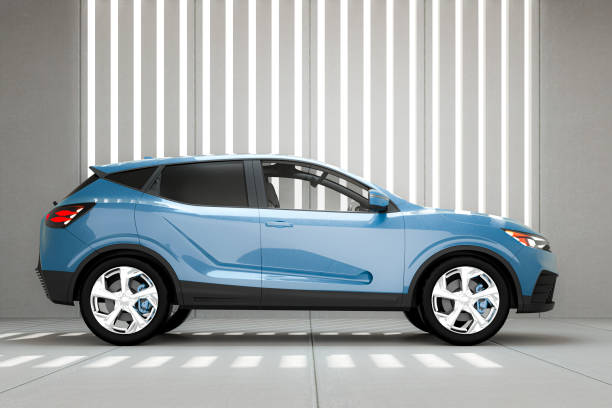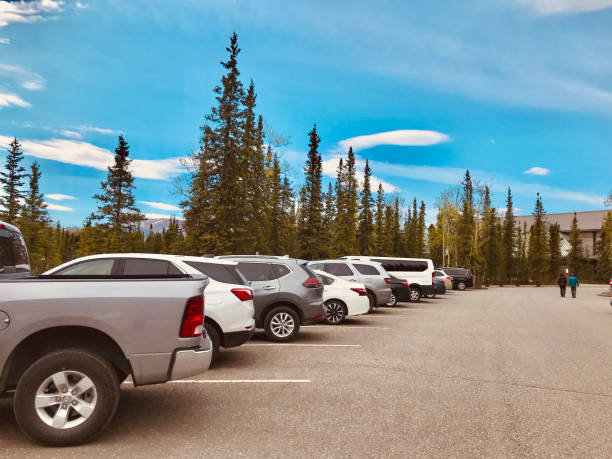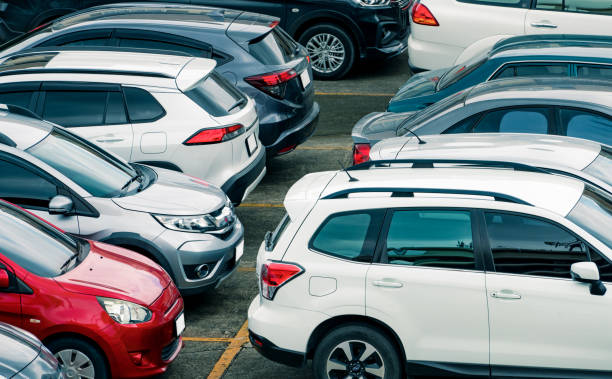An SUV and a pickup truck might not appear to differ all that much to the untrained eye. These vehicle types are not the same, though. Trucks typically have an open cargo area while SUVs are completely enclosed, despite the fact that both vehicles have high-performance engines, long beds, and roomy interiors.
With ongoing advancements in automobile design and manufacturing, these distinctions are gradually becoming less clear. Today, some SUVs imitate pickup trucks’ capabilities. Similar to sport utility vehicles, some pickups now feature sophisticated styling and cutting-edge technology.
Discover more about the classification of SUVs by reading on.
Is An SUV a Truck Or a Car?
We must first comprehend the distinctions between the two before deciding whether an SUV is a truck or a car.
Any automobile that is built on a body-on-frame platform with the express purpose of carrying goods, completing tasks, or moving specialized payloads is referred to as a truck.
Contrarily, a car is a small to medium-sized, four-wheeled motor vehicle constructed on a unibody platform to transport people and cargo.
As we’ll see, some SUVs are constructed on unibodies, much like cars, while others are on body-on-frame platforms, much like trucks.
However, each country and region has its own definition of an SUV. Some SUVs are considered light trucks in the USA instead of cars, but a car must have two seats and a trunk to qualify as a truck.
So, despite the fact that there is some ambiguity regarding the precise definition of an SUV, it is ideally a car.
What is An SUV?
A vehicle that combines the characteristics of on- and off-road vehicles is referred to as an SUV.
They were historically constructed on a body-on-frame platform that was more truck-based than car-based.
They are lighter than trucks but have a bigger chassis, four-wheel drive, and higher ground clearance than cars.
There isn’t a single definition of an SUV that is accepted worldwide, so German or Japanese SUVs might differ slightly from American SUVs.
According to some definitions, SUVs must be built on light-truck chassis, but other definitions include vehicles with off-roading capabilities.
Because of this, larger cars like the Jeep Wagoneer, Ford Expedition, Chevrolet Suburban, and Range Rovers are considered SUVs rather than trucks.
Similar to this, smaller SUVs that clearly lean more toward passenger cars than trucks, like the Honda CRV, are classified as SUVs.

Primary Types of SUVs
Mini/Sub-compact SUVs
These miniature cars, which are more common in nations where heavy taxes are levied on large vehicles, are smaller than the Mini Countryman. Jeep, Nissan, Volkswagen, Toyota, and Suzuki are among the top brands in this sub-segment.
Small/Compact SUVs
The dimensions of these SUVs are typical for European C-segment passenger cars, making them simple to maneuver and park. They make excellent family and daily commuter vehicles because of the roomy cabins. Manufacturers with excellent 2021/2022 releases include Hyundai, Mazda, Honda, Ford, and Subaru, among others.
Trivia: The Kurogane Type 95, a Japanese SUV used as a terrain reconnaissance vehicle and produced for the army from 1936 to 1944, has a nickname that translates into “All-Wheel Drive.”
Mid-size SUVs
These SUVs are very alluring to commuters and adventurers alike due to their practical size and impressive all-terrain capabilities. They are also in the middle of the price range, to add. While some older models still have characteristics of pickup trucks, the majority of more recent models are feature-rich and have a more upscale appearance than luxury SUVs. This group of vehicles includes the Kia Telluride, Hyundai Palisade, and Jeep Grand Cherokee.
Full-size SUVs
As their name implies, the original chassis for these cars and trucks were full-size pickup trucks. Some do, however, already have their own specific platforms today. For this SUV class, their extended length has not changed, resulting in a roomier interior and cargo area.
Extended Length SUVs
Its overall length of at least 17.1 feet (205 inches) distinguishes this sub-segment from a full-size SUV. Due to their generous passenger and cargo space, sport utility vehicle long-bodied variations are most popular in North America. Extended-length SUVs are perfectly exemplified by the Jeep Wagoneer and Ford Expedition of 2022.
Crossover SUVs
CUVs are occasionally viewed as the odd one out of all the SUV types because they are built on a passenger-car platform. They account for more than half of the country’s total SUV market. Unlike other SUVs. Despite having inferior hauling and off-road capabilities, CUVs provide much better interior styling and ride comfort.
Fact: The first CUV was the 1934 Opel Gändesportwagen, which was modified two years later to be more appropriate for off-road use.
What is the Difference Between a Truck and An SUV?
The type of driving for which each vehicle is intended is the main distinction between SUVs and trucks. Trucks are made for driving on roads, whereas SUVs are made for off-road driving.
SUVs are made to be driven through sand dunes, rough terrain, and mud and dirt. SUVs can also be used to move trailers or tow large pieces of machinery. Trucks can transport more cargo than SUVs, but SUVs can also transport more passengers. The same truck-based platform is used to build both SUVs and trucks, but SUVs are smaller and have a shorter wheelbase than trucks.
SUVs are lighter than trucks and also have a lower center of gravity. Trucks can carry more cargo than SUVs, but SUVs have more space for passengers. Since trucks typically have a lower ride height than SUVs, the latter can navigate muddy, uneven off-road terrain more easily than the former.

Pickup Truck Or SUV – Which Should You Buy?
Budget
Your budget is the primary factor to consider before any personal preferences when choosing an SUV, pickup truck, or any other type of vehicle. A light-duty pickup costs between $28,000 and $75,000, while the average price of a compact Japanese SUV is between $21,000 and $30,000.
These four-wheelers are not cheap due to their large cabins and off-roading/towing abilities. It would be nice to have a tough car with all the bells and whistles. Due to limited funds, however, lots of customers purchase their second choice or a used model.
Application
The next important factor to think about when buying your future adventure partner, if money isn’t an issue, is how you plan to use the car.
Do you go ripping and rock-crawling a lot in the dunes? You fit in perfectly with full-size pickup trucks.
Are your only excursions city driving and beach outings with friends? Then perhaps a crew-cab pickup or a small SUV would be a better choice.
Are you a builder and in need of a vehicle with a very long bed and a large payload capacity? You’ll get great use out of either a pickup or an extended-length SUV.
Rider Comfort
When it comes to rider comfort while driving, interiors, valvetrain, technology, and accessories all play a role. Having a four-wheeler that handles well, has the right gadgets, and isn’t a gas guzzler is essential, especially if you plan to use it more on city streets than on backcountry roads. A truck or SUV that is too large for the narrow city streets is also not something you want to drive. If you frequently travel in groups, you wouldn’t want to be in an extended cab truck either.
Mechanical Savvy
Working in a sizable auto shop requires you to be a qualified mechanic. You cannot, however, own a vehicle as complicated as a pickup truck or long-bodied SUV and have no troubleshooting skills. You should stick to large-size trucks and SUVs if you are a seasoned/savant mechanic or a hobbyist mechanic.
A small truck or SUV would be a better choice for new car owners to practice diagnosis and repair. Unless they have an urgent need for a larger vehicle, that is. Being mechanically adept also helps cut costs because you can handle simple fixes that most people would take to a professional.
Conclusion
SUVs are made for off-road driving, whereas trucks are made for driving on roads, which is how they differ from trucks.
Since SUVs are more maneuverable off-road than trucks, they are more popular. SUVs are larger than trucks and have a higher passenger capacity because they are constructed on a truck’s platform. SUVs can carry more bulky items than trucks can, and they have more room for passengers than trucks do.
Due to their smaller size per passenger and simpler off-road operation, SUVs are preferable to trucks for families. Due to their smaller size and superior suitability for road-only driving, SUVs are preferable to trucks for commercial use.
You might want to think about using a truck if you need to transport numerous passengers or large objects. Compared to trucks, SUVs frequently have larger passenger compartments, allowing them to accommodate more people.

